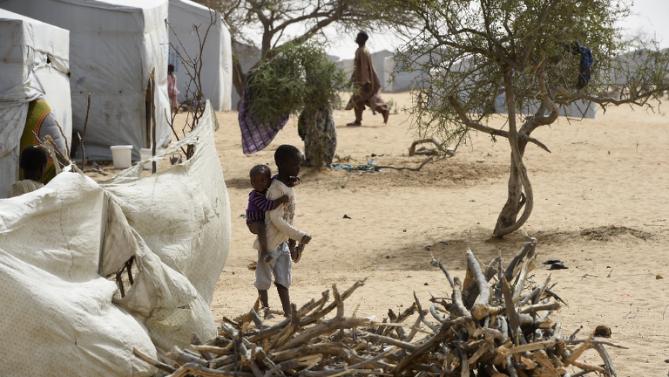The UN has warned that 50,000 Nigerians, ensnared by an insurgency by Boko Haram that the government says has been all but defeated, are at risk of starving to death.
Large rural areas in Borno State in Nigeria’s north-east are, the UN said, too dangerous for either its staff to access or civilians to escape. In these regions, some 54,000 people are believed to be living in a “catastrophic” situation, the highest level of food emergency in the Integrated Food Security Phase Classification (IPC) system used to classify hunger.
A further 780,000 people in Borno and two neighbouring north-eastern states are in the second-highest category of hunger-related emergency. Some 3.9m people in the north-east need food assistance because their livelihoods have been disrupted by the conflict.
Mobile networks in the north-east have been destroyed, making the UN’s attempts to verify the extent of the crisis more difficult. It has also hindered attempts to publicise the impending disaster. Unlike in Syria, where photos of starving residents distributed by activists sparked intervention to break the siege of Madaya, there are no photos of starving Nigerians to galvanise a response.
President Muhammadu Buhari said last year that Boko Haram had been “militarily degraded” after the army won back territory and towns seized by militants in 2014. But most of the “liberated” areas are still not accessible to aid agencies because of security concerns, according to the UN.
“We are finding it very difficult to access most parts of Borno State where the need is the highest,” Toby Lanzer, the UN’s top official in West Africa, said.
Although the army has regained control of most towns and villages, it has not secured the vast rural stretches where militants are still moving freely, say western diplomats and security officials.
Hundreds of thousands of Nigerians fled to the Borno state capital of Maiduguri in 2014 during the height of the insurgency. But those who stayed in their villages or were displaced have no route to safer ground and are at risk because relief cannot reach them.
Femi Adesina, Mr Buhari’s spokesman, nevertheless said the government had full access to all of the territory in the north-east.
The “famine-like” conditions in Nigeria had been caused by “very unfortunate circumstances” rather than a deliberate trapping of people, Mr Lanzer said.
The “stuck” communities could not sustain themselves, Mr Lanzer said, because they were unable to move their cattle for grazing, farm their land or trade across northern borders as they had done for centuries.
He warned that if the UN and the government “don’t manage to help people get out and trade and farm and tend to their livestock”, the crisis could worsen dramatically.
Critics say the UN’s response has been no more urgent than the government’s and blame the agency for not making greater efforts to reach the hardest hit communities.
“It’s about the political will to access them. We could be in a lot of places we’re not,” said an Abuja-based UN staffer. “The question is, will [we] be able to reach them in time?”

